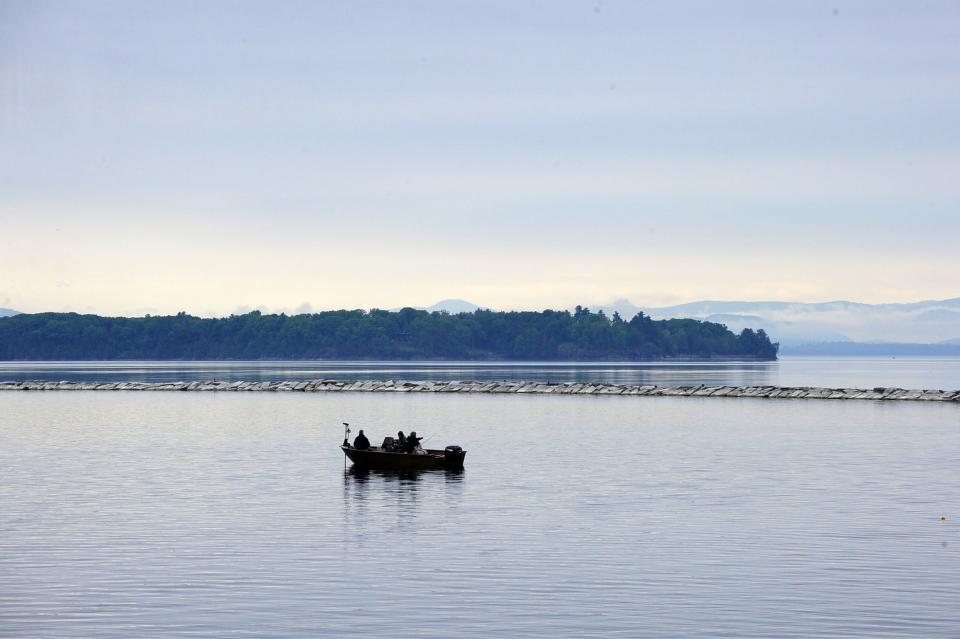Vermont's new wakeboat rule now in effect - what boaters should know
Correction: The wakeboat rule does not apply to Lake Champlain, Wallace Pond, Lake Memphremagog and Connecticut River Reservoirs. That point was unclear in an earlier version of the story.
As the summer season approaches, boaters should be aware of a new wakeboat rule in effect. The Department of Environmental Conservation (DEC) has published the rule regulating wakeboats and wakesports under Vermont’s Use of Public Waters Rules.
The rule went into effect April 15, 2024, and came about as a response to a petition filed by Responsible Wakes for Vermont Lakes that wanted to "keep wake surfing off our smallest lakes, and on the larger lakes restrict the surfing to the deep water far from shore."
What this means is that a wakeboat − a motorboat that has one or more ballast tanks, bags or other devices used to increase wake size − may operate in "wakesports" mode in designated zones in all of Vermont's lakes, ponds and reservoirs. A wakesport zone is "an area of at least 50 acres over 20 feet deep, at least 200 feet wide, and over 500 feet from shore," according to DEC.
Thirty of Vermont's inland lakes fall under this new rule. It does not apply to Lake Champlain, Lake Memphremagog and the Connecticut River reservoirs and Wallace Pond.

Environmental impact of strong wakes
Strong wakes close to shore have been known to have negative environmental effects. The strong currents can erode vulnerable shoreline if the distance is not adequate to dissipate the wakes. It can also stir up sediments in shallower waters. Protecting these natural resources and environments will ensure a healthier ecosystem.
This will also benefit common shallow water activities, including swimming, paddleboarding, kayaking and canoeing. In certain instances, a strong wave can be dangerous for those participants.
“The wakeboat rule – developed with significant input from the Vermont public – is science-based and reflective of Vermonters’ shared interests in environmental stewardship and outdoor recreation,” DEC Commissioner Jason Batchelder said.
Wakeboats will also be required to decontaminate or clean their ballast tanks when moving between lakes. More wakeboat information can be found on Vermont General Assembly website under laws.
Sydney P. Hakes is the Burlington city reporter. Contact her at SHakes@gannett.com.
This article originally appeared on Burlington Free Press: Vermont law calls for special areas for wake surfing for boaters

